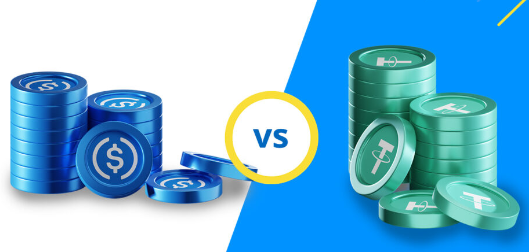
In the world of cryptocurrency, tokens are a unique form of existence that allows projects to issue their own currencies on existing blockchains. ERC-20, TRC-20 and Omni are three popular token standards that play an important role in the field of cryptocurrency. This article aims to explore the concepts of these three token protocols and their transfer advantages and disadvantages in depth, and provide investors with a detailed analysis.
1. Introduction to token protocols
ERC-20 (Ethereum): ERC-20 is a widely used token standard on the Ethereum network. It defines a series of rules that make tokens on the Ethereum blockchain exchangeable. ERC-20 tokens have become the first choice for many projects to issue tokens due to their high compatibility and easy deployment.
TRC-20 (TRON): TRC-20 is a token standard on the TRON network, similar to ERC-20, but implemented on the TRON blockchain. TRC-20 tokens are favored by project parties and users for their fast transaction speeds and low fees.
Omni (Bitcoin network): Omni is a token issuance and trading platform implemented on the Bitcoin blockchain. It allows users to create and trade custom tokens on Bitcoin's secure network, but transaction speed and fees are limited by the performance of the Bitcoin network.
2. Analysis of the advantages and disadvantages of token transfer
ERC-20 advantages and disadvantages analysis
Advantages:
High compatibility, easy to exchange and integrate.
Due to the popularity of Ethereum, it has a large user base and community support.
Applicable to various decentralized applications (DApp).
Disadvantages:
Transaction fees (Gas fees) fluctuate greatly with network congestion.
Transaction confirmation time may be longer when the network is congested.
TRC-20 advantages and disadvantages analysis
Advantages:
Fast transaction speed and low fees.
The performance of the TRON network is stable and supports large-scale applications.
Disadvantages:
Compared to Ethereum, the community and user base are smaller.
The recognition and liquidity in the cryptocurrency community are slightly lower.
Omni advantages and disadvantages analysis
Advantages:
Leverage the high security of the Bitcoin network.
Support the creation of multiple types of assets.
Disadvantages:
High transaction fees and speed limited by the Bitcoin network.
The functionality and flexibility are not as good as the smart contract-based standards.
3. The unique advantages of OMNI tokens
Among the many token protocols, OMNI tokens have attracted much attention due to their unique advantages. OMNI tokens are based on the Bitcoin network, which means that they inherit the high security and stability of the Bitcoin network. Although the transaction speed and fees may not be optimal, its security is unparalleled.
OMNI tokens are mainly used in scenarios that require high security and stability, such as:
1. Asset issuance: The OMNI platform allows users to issue various types of assets, including stablecoins, security tokens, etc.
2. Payment system: Due to the popularity and recognition of the Bitcoin network, OMNI tokens have a high degree of acceptance in the payment system.
Future Outlook of OMNI"With the continuous development of blockchain technology, OMNI tokens are also evolving. In the future, OMNI is expected to further improve its transaction speed and reduce fees through technology upgrades and community building, thereby occupying a more important position in the cryptocurrency market.
5. Conclusion: When choosing a token protocol, investors need to weigh it according to their own needs and project characteristics. ERC-20, TRC-20 and OMNI each have their own advantages and disadvantages and are suitable for different application scenarios. For projects that value transaction speed and low fees, TRC-20 may be a good choice. For projects that require high security and stability, OMNI is undoubtedly an ideal choice.
In short, it is crucial for cryptocurrency investors to understand the characteristics and advantages of various token protocols. I hope that the analysis in this article can provide investors with valuable references to help them make wise decisions in the cryptocurrency market.